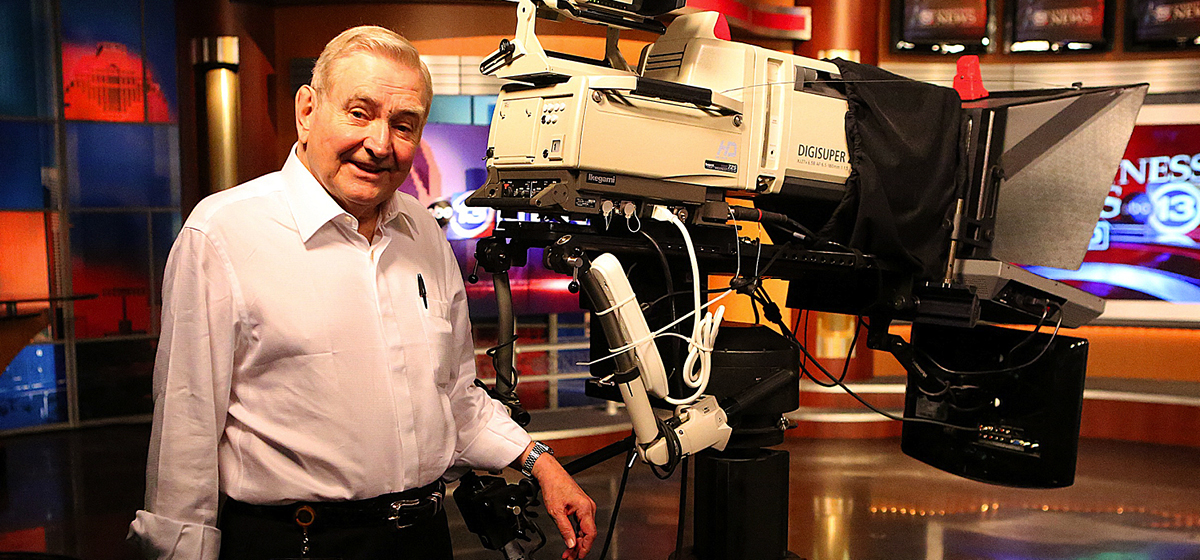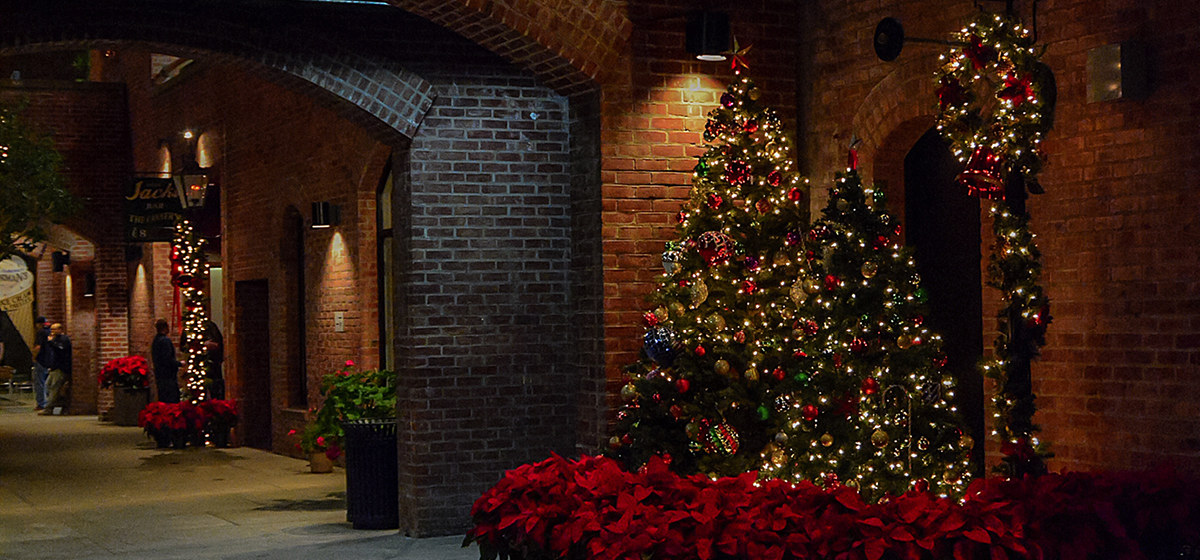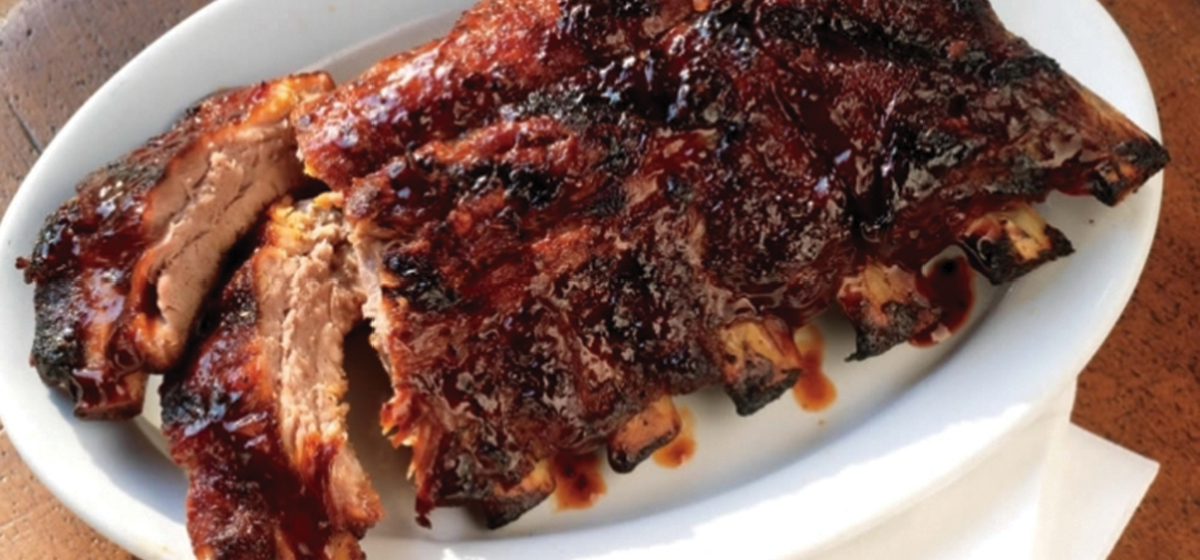When B.J. and Lindsay Munson had the opportunity to open Boomtown Fireworks, a 3,500-square foot fireworks warehouse staffed by the Willis High School Band Booster Club, they quickly shifted into overdrive. They were used to excitement—they were already the parents of three daughters, including a set of rare identical twins who had a difficult start to life. Not long after setting up shop in the fireworks warehouse, the Munsons made the building available to a church during the 48 weeks of the year it’s not being used to sell fireworks. Now expecting their second set of twins (boys this time), the Munsons’ lives are never dull.
B.J. Munson: There was already a company that sold fireworks in this building, but when they decided not to renew their lease, we were approached with the opportunity to open our own fireworks business. We had good friends in the business already who were able to give us advice. We knew the band booster club was already staffing it, and to have them making money for their organization was a win-win.
Lindsay Munson: We basically had one shot. We just decided to go for it and see how it went for us. It has become a really good partnership with the booster club, and with the church in the off season.
BJM: It was what we believe was a “God thing.” Steve Taylor, the pastor of 1012 Church, happened to be coming by the facility. He heard it might possibly be available. They had been meeting in a school right down the road for five years, tearing down and setting up every week. This location gives them the convenience of not having to move out every week and frontage on 75, so a lot of people get to see it’s a church. It really helped us out, and it helps them out, too. It was just awesome that it opened up to a ministry that could come in and do church.
LM: Shelli Hickson with the band boosters taught us so much about the products, about what people like, what they don’t like, and what they’re looking for. That was like a gold mine. As of last year, she is actually our contracted employee and manager.
BJM: We come in with a crew. We set up the facility as soon as the church moves out. We basically hand over the keys to the boosters and Shelli. We are in and out, but they really handle the whole thing. Then we pack everything up, and the church moves back in.
BJM: Stands are just a flat front. Here, we typically have so much more inventory and the whole gamut of fireworks that you can sell to the public. We have about 200 different types of products. Some people come in and buy just a few things, and others come in to get a lot of fireworks for big shows. Houses on the lake or two or three neighbors will go in together. They want very large fireworks, and they want a lot of them. They are planning to put on a nice show for people. The stands are not going to have the selection or the quantity they are looking for. Also, you get to shop indoors.
LM: We have people who come in year after year, and they were here to support the band. They may not be big fireworks people, but they still come in to support the band. I think the reason it has been such a good fundraiser for them is because it’s just those few days. They can knock it out, and they make a pretty good portion of their yearly fundraising that way. Another thing they are starting now is that they are trying to incorporate other organizations within the school. Last year, the boosters worked with Operation Graduation, and they hope to partner with other organizations in the future.
BJM: The band booster club is an incredibly well-run organization. We were really excited when they decided to go hand-in-hand with other organizations. That gives the other organizations a way to earn funds for their students and also teach their students how to run a proper fundraiser. The students love to sell. They love fireworks. Students come from college in the off season. It’s just fun for them to see their friends, play games, and talk to everybody. They have a great time during the slow times, and when customers are in the building, they are extremely knowledgable of the product. They know how to put together a good shootoff, and they have good recommendations for our customers. We have gotten to know a lot of the students. Many of them have returned for several seasons. It’s fun to watch them sell to people and get excited about what they are doing.
BJM: Our crazy time is actually getting the facility set up. It’s a very short window. We don’t want the church to have to be out of the facility for long. We have two to three days after the church is moved out. We have to race to get the facility stocked and get all our inventory put in. We have three little daughters, and normally they are out of school. They are getting old enough to help, but you have to keep an eye on them.
LM: The good thing is we have it down to a science. Everybody knows where everything goes. Everybody knows what we are doing. It’s a whirlwind.
BJM: The whole season is pretty crazy, but the last couple of days it’s very, very busy, and we try to stay very close in case there are customer questions. When it’s mega-busy, it’s a lot of fun for us, and it’s a lot of fun for the band. During that big day when there is a break in customers, they’ll yell out their total sales, and they will whoop and holler. Every season they are trying to beat their previous year.
LM: Eighty to ninety percent of our sales are in the last two days.
BJM: My family owns Coast to Coast Precast, a concrete stair tread company. We manufacture the concrete treads that go into stairways and ship out all over the country. I run the business for them. We are both very involved in our church, Church Project in The Woodlands. We are both on the worship team. I play piano and keyboard; Lindsay sings. We have been really happy there.
LM: We have tried our hand at backyard farming. My mother always said, “You can learn anything if you can read,” so we have tried it all—bunnies, chickens, a garden in the summer. I have run an online boutique for the past four years. This is my first season that the fireworks warehouse is my main job.
LM: We have actually known each other since we were in elementary school. Our families have been close. We both went all the way through school and started dating my junior year of high school (his senior year). We went off to Baylor and got married after two years at school. We both graduated from Baylor, then came back home. He had a job with his family, and I was expecting our first child.
LM: I constantly tell Hayden, our firstborn, I am so thankful she was just one. She eased us into parenthood very nicely. I totally remember like it was yesterday having the conversation about maybe having another child. We thought it would be this natural progression of our lives. All our friends joked with us and said, “What if it happens to be twins?” We went into the doctor’s office and said, “This is getting ridiculous. People are making all these jokes. Just put all these rumors to rest.”
LM: We were laughing. What else do you do at that moment, really? I had never been that girl who thought, “I want to have twins.” We wanted to have two kids, maybe three. We went from one to three, but didn’t really have the middle child experience. It was totally a shock. But then excitement and anxiety went to high risk. They told us there was a 50/50 chance of bringing home one or no babies. Mono-mono twins [monoamniotic-monochorionic twins, which share an amniotic sac and placenta] are the second most uncommon twins behind Siamese twins. It’s extremely dangerous; they wouldn’t let me go past 32 weeks because mortality goes up. The two cords were wrapping around each other. I was constantly monitored. I was in the hospital for 49 days. I think it shielded me from the “Holy moley, we are having three children!”
Coming home by myself was gut-wrenching. People would call and say, “How can I help you?” I just wanted to see my babies. They weighed three pounds, which is actually good for that age. I had never seen a baby that small in my whole life. They were at risk for so many things, because so many parts weren’t fully developed yet. One was in the hospital for 7 weeks; one was in for 13 weeks. NICU life is a roller-coaster. Bringing them both home was amazing.
BJM: Once we got them through everything and got them home, they have been pretty near perfectly healthy. You would never know anything that they went through.
LM: When we found out we were pregnant again and found out it was twins again, there was this sinking feeling because we lived through so much trauma. It was immediately like, “You have got to be kidding me.” Then we heard they are fraternal, and it was such a relief. We are looking forward to experiencing this the fun way.



